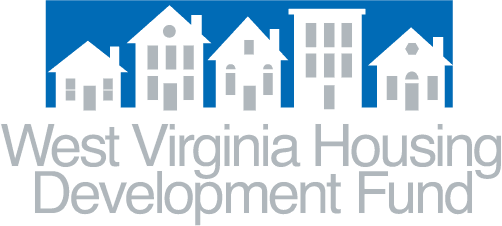For many first-time homebuyers, the world of real estate lending can be confusing. Terms like escrow, amortization, and annual percentage rate may create some hesitancy among buyers.
However, housing counseling agencies across the state work to help first-time homebuyers understand the process or to help current homeowners maintain their financial health and grow their nest egg. These services are available to any homebuyer, including those who buy their homes through the West Virginia Housing Development Fund.
“Many of our first-time homebuyers may not have a full understanding of the lending process when they come to us to buy their first home,” said Jon Rogers, Senior Division Manager of Single-Family Lending for the West Virginia Housing Development Fund. “These are people who, for the most part, have strong credit and money in savings, but have never taken out a mortgage loan. Homebuyer counseling and education helps them understand the loan process and empowers them to make sound financial decisions going forward.”
So, what does housing counseling entail? Let’s take a look:
Credit review
The first step in any loan process is a review of the customer’s credit. All Fund homeownership programs require a credit score of at least 620, which is typical among mortgage lenders. However, customers might not realize that missing payments, a high debt-to-income ratio, or a short credit history all can negatively affect their credit scores and prevent them from securing a loan. That’s where credit counseling can help.
“Issues with credit worthiness is a typical barrier to the dream of homeownership, yet it can be one of the easiest things to improve upon if you know what to do,” said Shelene Shrewsbury, Executive Director of the Consumer Credit Counseling Service of the Mid-Ohio Valley (CCCS). “CCCS educates our clients to a better understanding of the credit report and scoring system, as well as helping them realize the importance of keeping good credit, not only through the homebuying process, but also throughout other financial transactions. There is money savings for car insurance, credit card rates, loan rates, as well as improved employment opportunities when credit worthiness is achieved and maintained.”
CCCS pairs consumers with certified credit counselors who take a holistic approach to guiding potential homebuyers through the process, Shrewsbury explained. The counselors will review the customer’s credit history and offer advice on ways the consumer can improve their credit. A detailed action plan guides consumers toward their financial goals.
“Follow up sessions are encouraged where we can measure the improvement of the potential homebuyer’s credit report and scores, review affordability, and help a potential homebuyer find the right mortgage product for their situation,” Shrewsbury said.
 Homebuyer and homeowner education
Homebuyer and homeowner education
Once a homebuyer has their credit squared away, what’s next? The Fund and several homeowner counseling agencies offer homebuyer education, which guides first-time buyers through selecting and buying a home. Through Fannie Mae’s HomeView program, Fund customers not only learn about the loan process, but also how to select a real estate agent, how to find the right home, how to make an offer, and what is involved in closing on a mortgage loan. The final module covers homeownership responsibilities, including planning for expenses and maintaining the home’s value.
“Homeownership is the best way to build wealth, but it also can be very expensive,” Rogers said. “It is important for all homebuyers to be aware of the hidden costs of owning a home, including rising utility bills, home maintenance, or unseen issues that may give way to bigger problems down the road. Our homebuyer education course arms buyers with the tools to properly plan and budget for these expenses so that they can become a responsible homeowner.”
Services for homeowners in default
The COVID-19 pandemic has illustrated that even the most careful homeowners can still face crises and fall behind in their payments. West Virginia homeowners who are at least 90 days delinquent in their mortgage payments may qualify for assistance through the West Virginia Homeowners Rescue Program. The Fund administers this emergency federal program to help homeowners who have been affected by the COVID-19 pandemic. Visit www.wvhomerescue.com today to find out if you qualify.
The Homeowners Rescue Programs partners with agencies across the state including The HomeOwnership Center, Fairmont-Morgantown Housing Authority, Change, Inc., the Religious Coalition for Community Renewal, and Telamon to work with eligible homeowners and help them avoid foreclosure. Counselors also can also offer longer-term services such as financial coaching, budget development and monitoring, goal setting, and credit repair.
The Religious Coalition for Community Renewal primarily serves Kanawha, Boone, Fayette, and Putnam counties, but also offers virtual pre-purchase and housing counseling across the state.
“We have a HUD-certified housing counselor who specializes in foreclosure prevention, where they assist clients in eminent foreclosure status, assist in completing their application for assistance to stay in their home by loan modification, and work to prevent foreclosure,” said Jim Gordon, a RCCR housing counselor. “Our housing counselors also educate clients on their rights, budgeting, developing a savings for emergencies, and improving their credit worthiness.”
Housing counseling can help anyone improve their financial standing, but it does have tangible, long-lasting benefits for first-time buyers.
“Housing counseling can help everyone achieve their dreams of home ownership, but it helps first-time home buyers more by providing lifelong education about credit, budgeting, and affordability,” said Jami Stewart, Home Ownership Adviser with the HomeOwnership Center. “With a HUD-approved housing counselor, you have an ally who stands on neutral ground. Counselors provide the critical information, and the potential homeowner makes the decision that best gets them closer to their overall goals with a supportive voice cheering them on.”
In many cases, housing counseling services are available to state residents regardless of financial or homeowner status. To view a list of HUD-certified agencies available in your area, visit https://www.wvhdf.com/counseling-agencies.

